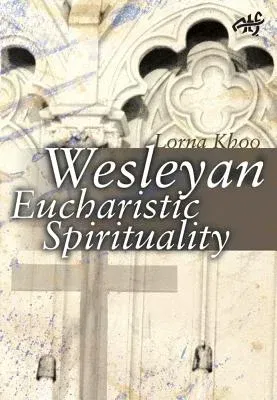Lorna Khoo
(Author)Wesleyan Eucharistic SpiritualityPaperback, 2 January 2005

Qty
1
Turbo
Ships in 2 - 3 days
Only 2 left
Free Delivery
Cash on Delivery
15 Days
Free Returns
Secure Checkout

Part of Series
ATF Dissertation
Print Length
320 pages
Language
English
Publisher
ATF Press
Date Published
2 Jan 2005
ISBN-10
1920691316
ISBN-13
9781920691318
Description
Product Details
Author:
Book Format:
Paperback
Country of Origin:
US
Date Published:
2 January 2005
Dimensions:
20.98 x
15.34 x
1.93 cm
Genre:
Christian
ISBN-10:
1920691316
ISBN-13:
9781920691318
Language:
English
Location:
Adelaide
Pages:
320
Publisher:
Series:
Weight:
462.66 gm